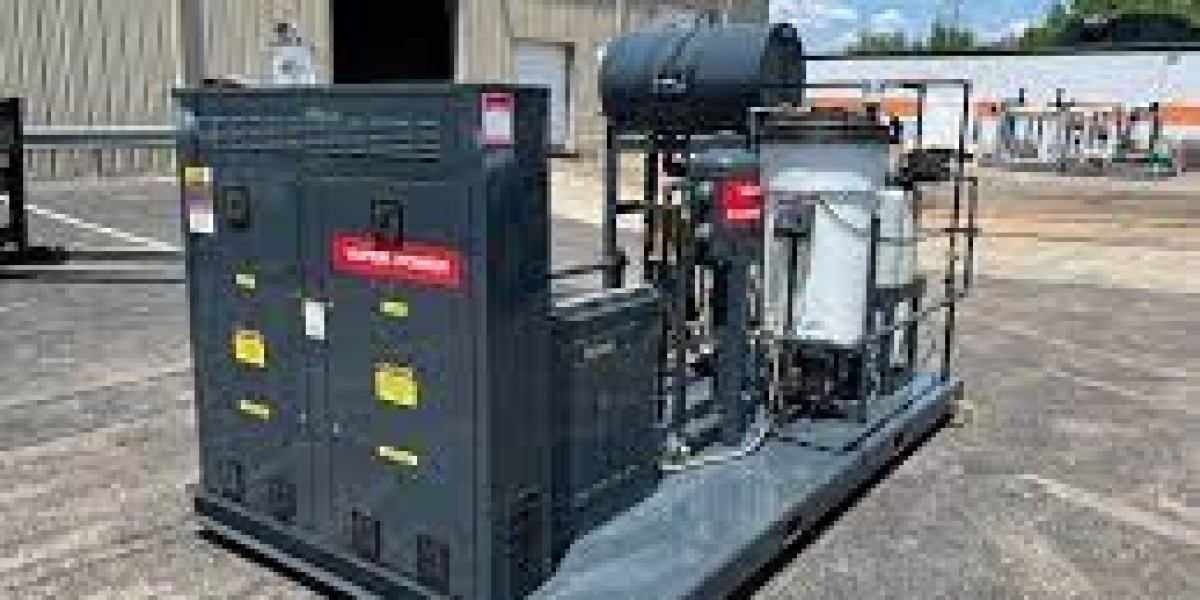A genset is a package of engine, generator, and ancillary equipment that provides power. Gensets are used in numerous applications, from keeping refrigerated containers cold during overseas shipping to providing backup power for medical equipment at hospitals.
Whether they run on diesel fuel or gas, gensets are convenient and efficient sources of electrical power. Read on to learn more about the components of a genset and where they are commonly used.
Portable
A portable genset can be used to provide power for any worksite, regardless of whether it has access to the power grid. Diesel fuel powers these generators, which produce electrical current that can be used for anything from construction equipment to appliances and even lighting.
These generators can also serve as backup power sources, allowing businesses to continue operations during a blackout or other emergency. This can be especially useful for data centers, where the loss of electricity could lead to lost business. Hospitals may also use these used gensets to keep their critical machinery running. The generator combines a prime mover and an alternator to provide power. The engine converts chemical energy into mechanical energy, which is then used to spin the alternator rotor. The rotor then creates electrical current through electromagnetic induction when connected to a load. These generators are often used in remote locations without access to the power grid, and they are sometimes included with refrigerated containers such as those from Klinge Corporation to keep temperature-sensitive loads cool during road transport.
Fuel-Efficient
The engine in a genset converts the chemical energy of fuel into mechanical energy, which is used to spin an alternator that turns mechanical energy into electrical current. When hooked up to a load, that electrical current generates power.
Many gensets are built to be fuel-efficient, which makes them good choices for backup power applications. In fact, some people use gensets as the primary source of power for their homes. The key is to keep the used generators fueled properly and to perform routine maintenance.
Some gensets are even capable of bi-fueling between propane and natural gas. This allows you to take advantage of changing fuel prices and other power supply options. For example, the Fischer Panda 8 Mini DP is compact and can run on both gasoline or natural gas. It even features an electric start. The unit is designed for optimal loads and uses water-cooled generator windings to reduce maintenance. It can be mounted in a 40-foot container that includes the control panel, fuel tank and other equipment needed to operate as a stand-alone power station or a back-up to grid power.
Reliable
Because gensets are portable, fuel efficient and reliable sources of electrical power, they can be used in a wide variety of situations. They are especially useful for providing backup power in case of a loss of electrical power or as the primary power source in locations without access to a power grid. For instance, hospitals use gensets to keep vital machinery operating in the event of an outage. And, many refrigerated shipping containers, like those offered by Klinge Corporation, come equipped with a genset for the refrigeration unit that can be used to maintain the ideal temperature during overseas transportation.
Businesses can also rely on gensets for backup power to prevent lost productivity, such as in the case of a data center during an outage that affects server availability. And, for those who have specific environmental concerns about diesel gensets that require on-site fuel storage, natural gas gensets are an alternative option to consider. They can be powered by either natural gas or propane and still operate reliably.








